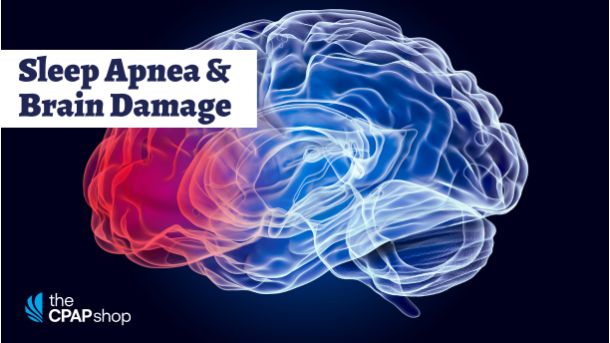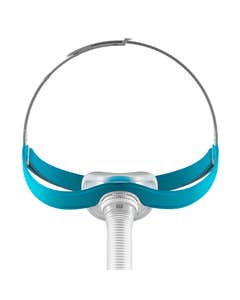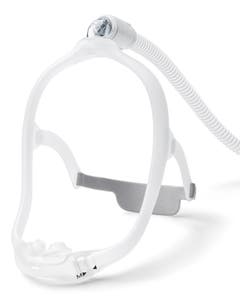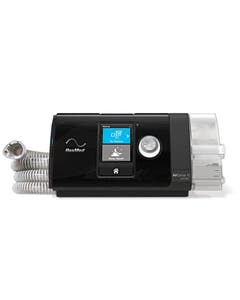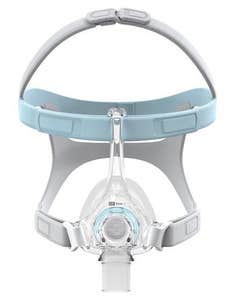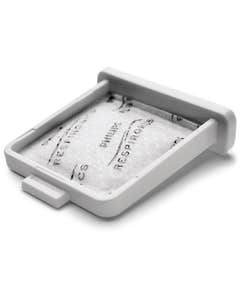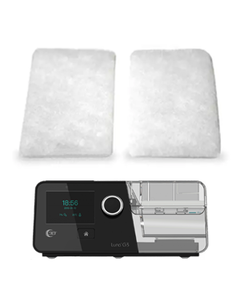Can Sleep Apnea Cause Brain Damage?
Key Takeaways
- The link between sleep apnea and brain damage is only apparent in severe cases.
- Those who suffer from brain damage caused by sleep apnea may experience a wide range of symptoms that affects all parts of the body.
- Getting an adequate amount of air flow to the brain is crucial to the body's proper functioning.
Sleep apnea and brain damage are related but only in the most severe cases. Because sleep apnea can cause reduced oxygen flow to the brain, there is always the risk that damage can result. It is important to know that only prolonged periods of lack of oxygen can cause any severe damage, so while the risk of severe brain damage exists, it is low.
Breathing and Brain Function
Oxygen flow is critical for brain health and function. As you breath air into your lungs, the oxygen in the air is being absorbed into the blood stream. From there oxygen saturates every part of the body including the brain. Without a steady flow of oxygen, the brain can literally die.
Can Sleep Apnea Cause Brain Damage?
Only in extreme cases can sleep apnea cause severe brain damage. But the risk is there for mild to moderate damage. The apneas that occur during OSA can cut off oxygen supply to the brain for a few moments repeatedly throughout the night. This disruption in oxygen flow, while not major, can still leave someone with sleep apnea groggy in the morning. They may also experience poor concentration, poor memory, and other cognitive disabilities from even the short loss of oxygen that the brain needs to repair itself every night.
Brain Without Oxygen
Though sleep apnea is unlikely to cause a sudden brain damage event, prolonged loss of sleep from sleep apnea can begin affecting the overall health of the brain. Telltale signs include moodiness, depression and anxiety, short attention span, and difficulty focusing on even simple tasks.
Sleep Apnea and Brain Fog
We have all experienced brain fog one time or another, which is often associated with lack of sleep. The dream state feeling of brain fog during the day is directly related to sleep deprivation, which can be caused by sleep apnea. During healthy sleep, the brain takes time to repair itself and prepare for the next day. Sleep deprivation prevents this period of restoration, which can leave a sleep apnea patient slightly dazed and suffering from reduced mental alertness.
Symptoms of Sleep Apnea Induced Brain Damage
With regular sleep loss due to sleep apnea, many patients may start to experience symptoms of sleep apnea-induced brain damage. Some symptoms include:
- Difficulty with most cognitive functions, including response time
- Memory loss
- Difficulty concentrating
- Mood swings
Breathing Differences Between Normal Sleep and Sleep Apnea
Exchange of Gases
During normal sleep, respiration is about 12 to 20 breaths per minute, which allows an exchange of carbon dioxide for oxygen. The oxygen effectively saturates into the bloodstream and throughout the body.
During sleep apnea, the breathing pattern is intermittent and erratic. As a result, the normal exchange of carbon dioxide and oxygen becomes irregular. Most patients with sleep apnea have lower blood oxygen levels at night.
Chemical Changes Due to OSA
OSA can also lead to chemical changes including the excessive release of glutamate, which acts as a stimulate for the brain. Too much glutamate leads to restlessness and mood swings. Excessive glutamate can also be toxic and affect brain health and function over time.
Can Brain Damage from Sleep Apnea be Reversed?
Though the idea of brain damage from sleep apnea can be scary, the good news is that it can be reversed. Ceasing the symptoms of sleep apnea is the first step. Regular use of PAP therapy helps a sleep apnea patient get the sleep they need so the brain can repair itself. Studies have shown that sleep apnea patients who were diagnosed with minor brain damage and who stayed CPAP compliant began to see improvements in brain repair.
How Long Will it Take to Reverse Damage from Sleep Apnea?
One study showed that one year of regular CPAP therapy reversed white-matter damage in people with severe OSA. Participants also showed improvements in mood, quality of life, and alertness after using a CPAP machine. ¹
While results may vary, the consistent use of PAP therapy (known as CPAP compliance) under the supervision of a doctor can slowly improve brain health lost to sleep apnea.
Easiest Treatment for Sleep Apnea
One of the common and easiest non-invasive treatments for sleep apnea is CPAP therapy. CPAP therapy is prescribed by your doctor after a sleep apnea diagnosis. A CPAP machine is used nightly to deliver pressurized air through a hose into a mask you wear while sleeping. While it can take getting used to, CPAP machines are one of the best ways to ensure healthy sleep with sleep apnea.
If you have been diagnosed with sleep apnea, you can find CPAP machines, hoses, and masks at The CPAP Shop. The helpful and knowledgeable staff can assist you in finding the best CPAP machine based on your prescription and ship it promptly to your door. Give us a call at 866-414-9700 today.
References
1. Verywell Health Dorwart, Laura. March 2022. Is Sleep Apnea Brain Damage Reversible?



